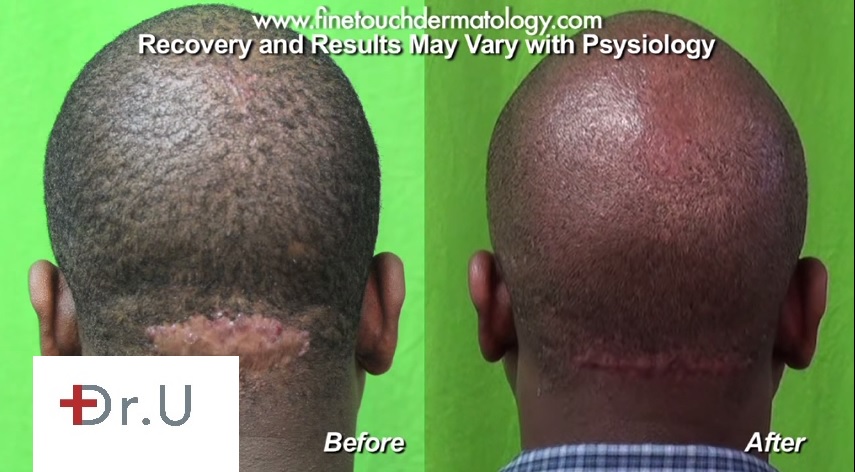It is very likely that there is a genetic predisposition to Acne Keloidalis Nuchae. AKN occurs twenty times more frequently in men. Therefore it is possible that this condition is associated with a sex linked chromosome.
Aside from this, experts can only offer reasonable explanations on why the scarring and tissue growth occurs.
AKN in Patients With Curly Hair
Since AKN occurs mostly in black males, one possibility is that that curly hair grows back into the skin. This will cause the immune system to attack the hair follicles, resulting in the formation of scars
Research on using the Nd:YAG laser to remove the problematic hair shafts helped to improve the appearance of the lesions.
However, Acne Keloidalis Nuchae also occurs in individuals with straight hair.
Acne Keloidalis Nuchae As Scarring Folliculitis
Inflammatory cells may exist in the walls and ostia of the hair follicles.
If the hair grows back into the follicle and is perceived as a foreign invader, these cells may initiation reaction. This can result in the follicle being attacked.
The skin tends to produce collagen fibers in response to an injury. So it will develop scar tissue as a result of the inflammation.
Hair Loss and AKN
Acne Keloidalis Nuchae is a condition where the patient looses hair as a result of the follicles being attacked and destroyed. This form of hair loss is known as cicatricial alopecia.
AKN is listed as one cause of this condition.
Drugs Used For The Treatment of Acne Keloidalis Nuchae Symptoms
The use of medications for Acne Keloidalis Nuchae may offer the most help during the earliest stages of the condition. Otherwise their usage can only provide limited relief for the itching, discharge and pain
For example, antibiotics can be used to alleviate bacterial infections resulting in drainage and pus. Cortisones and steroids will contract the blood vessels to help minimize inflammation.
However, actually clearing the AKN tissue requires surgery.





